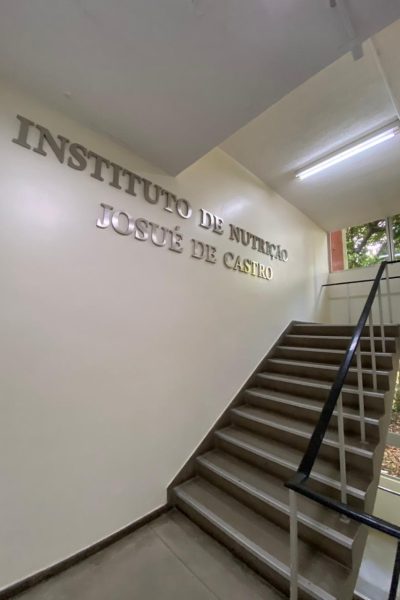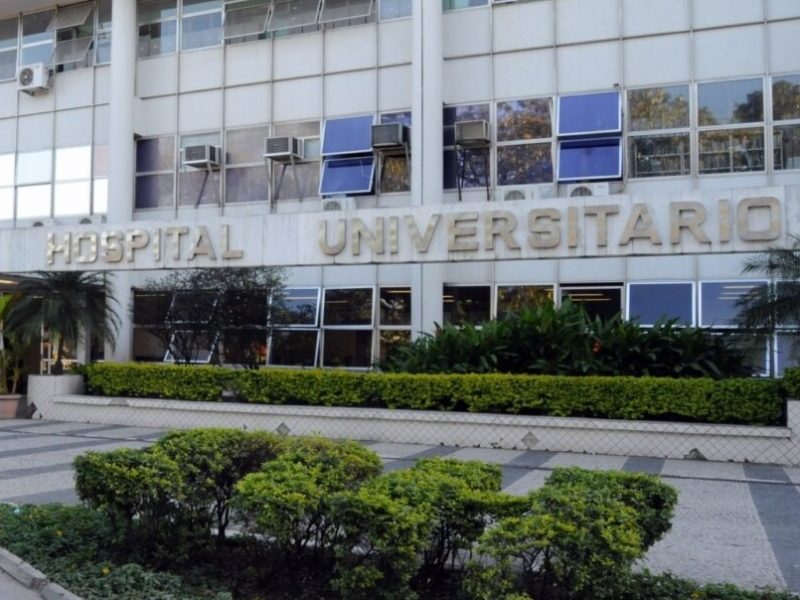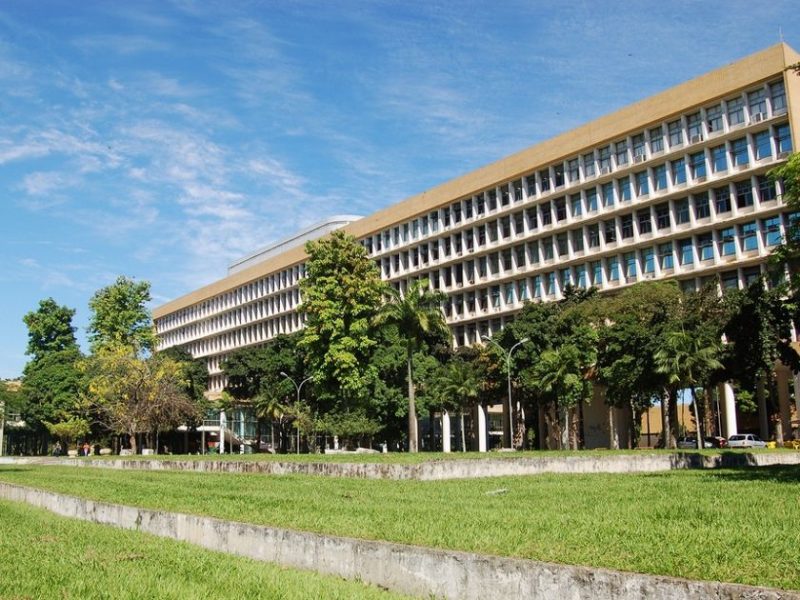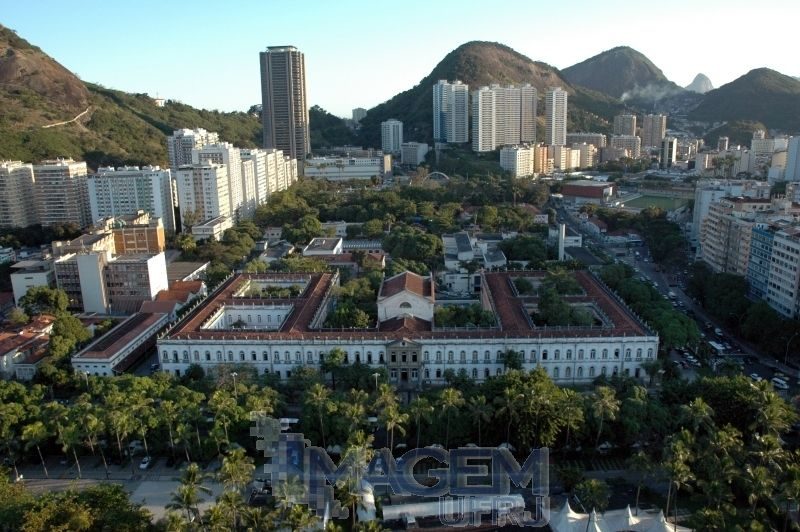CRI - INJC
Opportunities for foreigners at INJC
International Student
About the INJC degrees in Nutrition and Gastronomy
Presentation
Established in 1946, at the former University of Brazil, the Instituto de Nutrição Josué de Castro – INJC (Josué de Castro Nutrition Institute) became part of the Federal University of Rio de Janeiro – UFRJ, in 1920. UFRJ, which has since been a center of excellence in teaching, research and extension, was ranked, in 2021, by the QS World University Rankings in the third position of the best university in Brazil and the second one in Latin America, being still placed among the best universities in the world.
At the INJC, the degree in Nutrition was implemented in 1948 and at the time it was among the first institutions to train nutritionists throughout Brazil. A little over ten years ago, in 2011, the INJC inaugurated the degree in Gastronomy, which is the first bachelor’s degree course in the area, whose program is now made available at a public Higher Education Institution – IES in the southeastern region of Brazil.
The two INJC degree programs have highly qualified professionals who work in university teaching, research and extension, both at its headquarters and main unit, the Center for Health Sciences, located in the Cidade Universitária – Rio de Janeiro, and externally, through several partnerships with other educational institutions, at different levels and social organizations and class entities. These partnerships promote a teaching-learning experience for the social body of the INJC and its partners, characterized by scientific rigor and critical, reflective and humanistic mediation, as required by an education that wants to be emancipatory and committed to social demands and needs.

ORGANIZATIONAL STRUCTURE AND INFRASTRUCTURE OF THE INJC
The INJC consists of four departments: 1) Nutrition and Dietetics, which comprises four sectors: Food Service Administration, Conventional Nutrition, Maternal and Child Nutrition and Clinical Nutrition; 2) Basic and Experimental Nutrition, divided into: Food Sciences and Dietary Techniques; 3) Social and Applied Nutrition, comprising: Nutritional Assessment, Nutrition in Public Health and Nutritional Education [1] and 4) the Gastronomy department, comprising the areas of Management, Hospitality, Food Studies and other complementary topics.
At present, the INJC faculty encompasses 69 employees who are divided among administrative technicians and professors. In the Nutrition course, 96% of the teachers are trained in nutrition. In the Gastronomy course, due to its interdisciplinary nature, training is characterized by gastronomy professionals, nutritionists and professors in areas such as Administration, Tourism, Hospitality, Social Memory, Anthropology and others.
Another great differential of the INJC are their several number of laboratories: Laboratories of Bromatology and Food Composition; of Dietary Techniques and Cooking; of Food Technology; Functional Foods; Fruit and Vegetable Processing; of Nutritional Biochemistry and Nutritional Animal House; of Food Chemistry and Bioactivity and Coffee; of Nutritional Assessment; Food Development for Special and Educational Purposes; Research and Extension Center in Clinical Nutrition; the Graduate and Graduate Computer Science Laboratories; of the Technology Laboratories, all providing instrumental and methodological support to undergraduate and graduate education, in addition to INJC research and extension activities.
Furthermore, the degrees in Gastronomy and Nutrition count on the Dietetics Laboratory of the Central University Restaurant of UFRJ, aimed at carrying out practical activities in the field of food studies.
It is worth mentioning that the INJC is responsible for managing the UFRJ Food System, from its central university restaurant – RU, which serves the various university campuses, guaranteeing comprehensive training opportunities for all students, especially low-income students, devoid of resources. The Food System that serves the entire UFRJ community is guided by the National Food Policy. As a matter of fact, it goes beyond it in the sense that it promotes an “environment for qualified personnel training as well as a space for meetings and reflection on issues involving food and the act of eating. It also deepens the consolidation of a culture of human rights and new spaces for sociability, with solid investments in the political-cultural dimension. Besides, providing subsidies for the production of analysis and the implementation of actions, in order to expand the knowledge of the university institution and establish its dissemination in the community.[3]

ABOUT THE NUTRITION AND GASTRONOMY CURRICULUM
The courses that aggregate the INJC are aimed at students who have completed high school in Brazil. In this case, students must take an admission test, called the Single Admission System – SiSU, regulated by the Ministry of Education – MEC. The INJC degree programs are completed in eight academic semesters and can be extended to twelve semesters.
Nutrition has a basic cycle and a professional cycle of courses, which full time is equal to 3790 class hours, distributed into 44 courses taught during eight months. Of these courses, five are aimed at supervised curricular internships carried out in the last year.
The degree in Gastronomy is composed of three axes of knowledge: Management, Hospitality and Food Studies and its Practices. The curriculum is composed of theoretical, practical and complementary activities, in addition to supervised internships and final graduation projects, called “Trabalho de Conclusão de Curso- TCC” or Course Completion Work. The whole Gastronomy workload is of 3000 class hours named credits, 45% of which being theoretical, 35% practical and 20% internships subjects.
POSTGRADUATION AT INJC
Postgraduate programs at the INJC began in the late 1970s, offering specialization courses. In 1985, the academic master’s degree in Human Nutrition emerged. Today, the INJC is the only institute in the teaching of Nutrition in Brazil that has stricto sensu academic and professional postgraduate programs, being, respectively, the Postgraduate Nutrition Program – PPGN, with the Master’s courses in Human Nutrition and PhD in Nutritional Sciences (www.ppgn.ufrj.br), and the Graduate Program in Clinical Nutrition – PPGNC, with a professional master’s course (PPGNC – Graduate Program in Clinical Nutrition (ufrj.br). programs, the INJC offers six lato sensu specialization courses and four multi-professional residencies within the scope of UFRJ.
The success of management, coordination and integration between professors and students results in sources of financial resources that help the development of interdisciplinary, intra and inter-institutional projects, supporting the production of quality research. With the mission of training masters and doctors with critical and reflective thinking to work in the areas of teaching, research and extension, these programs are also articulated with undergraduate teaching and university extension, enhancing qualified training in the fields of Food and Nutrition.
Lato Sensu courses
The INJC also offers Lato Sensu courses, in line with the norms established by the UFRJ for the teaching of graduates [4]. These courses are funded by the students themselves, in order to generate resources committed to the continuity of their offer, as well as their expansion. The courses offered are:
– Specialization Course in Nutritional Interventions in Public Health;
– Specialization Course in Institutional Food: Emphasis on Planning and Control;
– Specialization Course in Nutrition in Obstetrics and Pediatrics;
– Specialization Course in Clinical Nutrition (CENC), the most long lasting of the INJC;
– Phytotherapy Applied to the Clinic (CEFITO);
– Functional Nutrition Applied to the Clinic (CENUF);
– Collective Food (CEAC);
– Nutritional Therapy in Pediatrics (TENUTPED);
– Nutritional Therapy (CETNUT).
Finally, already in institutional procedure, the course of creating Specialization in Beverages and Gastronomy, the first UFRJ graduate-level initiative in the area of Gastronomy.
Multiprofessional Residency Programs
Concerning the multi-professional residency programs, cooperating with UFRJ hospitals and others in the areas of health and human sciences, the INJC offers:
– Integrated Multiprofessional Residency in Health, at the Hospital Universitário Clementino
Fraga Filho (University Hospital Clementino Fraga Filho);
– Multiprofessional Residency in Family and Community Health, at the Hospital Escola São Francisco de Assis (School Hospital São Francisco de Assis);
– Multiprofessional Residency in Perinatal Health, at the Maternidade Escola (Maternity School);
– Residency in Child and Adolescent Health, at the Instituto de Puericultura e Pediatria Martagão Gesteira (Institute of Childcare and Pediatrics Martagão Gesteira).
The specificity and variety of lato sensu graduate programs allow exchanges between the various fields of practice and teaching demanding research, so that it is not uncommon for students to enter sricto sensu graduate programs, namely, Master’s Programs and doctorate. Course completion monography and extensionist practices also become more dense investigations that go deeper into stricto sensu graduate programs. Our professors, who participate in undergraduate and postgraduate courses, also bring experiences from Brazilian and international institutions. For all these reasons, we hope to consolidate the INJC’s humanist identity, the comprehensive and responsible vision with new members and cultures in order to guarantee a future towards an ever more comprehensive bio-socio-environmental equity.
INTERNAL PARTNERSHIPS
Among UFRJ’s internal partnerships, the undergraduate course in Gastronomy has the support of departments and institutes such as the School of Fine Arts, the Nutes Institute of Science and Health Education, the Coppead Institute of Administration, the Faculty of Law and History. These institutes are responsible for offering subjects from the curriculum in Gastronomy, enabling the exchange of multidisciplinary and multiprofessional knowledge, in addition to the contact of students with highly qualified centers, which have state-of-the-art knowledge in the aforementioned areas.[1]
The Nutrition undergraduate program also maintains partnerships within the UFRJ, which begin in the basic teaching cycle with the Carlos Chagas Filho Institute of Biophysics, the Biology Institute, the Biomedical Sciences Institute, the Paulo de Góes Institute of Microbiology, the Faculty of Medicine, among other important areas of knowledge at UFRJ, such as the Institute of Economics, Psychology and Philosophy and Social Sciences and the Social Work Communication Schools.
EXTERNAL PARTNERSHIPS
Externally, the two courses promote extension actions with external communities, totaling in 2021 more than 30 projects coordinated by professors, together with students and the UFRJ staff. It is important to highlight that extension practices allow the participation of students enrolled at UFRJ, coming from any of their areas of training, which enhances a very rich experience of exchanges, research and actions with partnerships in communities outside the university. Actions aimed at the fields of Health, Education, Environment, Culture, Work, Technology and Communication are developed by the members of extension actions, many of which develop scientific dissemination events, written production, publications, among other activities recognized in the national academic and international scope.[2]
INJC/IRC – INJC International Relations Commission
References
[1] SANTIAGO, Ceci Figueiredo de Moura et al. Trajetória dos cursos de graduação do Instituto de Nutrição Josué de Castro: 75 anos de história. DEMETRA: Alimentação, Nutrição & Saúde, [S.l.], v. 16, p. e61215, set. 2021. ISSN 2238-913X. Disponível em: <https://www.e-publicacoes.uerj.br/index.php/demetra/article/view/61215>. Acesso em: 22 dez. 2021. doi:https://doi.org/10.12957/demetra.2021.61215
[2] DA SILVA, Thadia Turon Costa et al. A Extensão Universitária no Instituto de Nutrição Josué de Castro da Universidade Federal do Rio de Janeiro. DEMETRA: Alimentação, Nutrição & Saúde, [S.l.], v. 16, p. e61181, set. 2021. ISSN 2238-913X. Disponível em: <https://www.e-publicacoes.uerj.br/index.php/demetra/article/view/61181>. Acesso em: 22 dez. 2021. doi:https://doi.org/10.12957/demetra.2021.61181.
[3] Sistema de Alimentação da UFRJ. Disponível em: < https://ru.ufrj.br/index.php/2014-07-24-00-51-12 >. Acesso em dez, 2021.
[4] PEREIRA, Rosângela Alves et al. Trajetória, avanços e perspectivas da pós-graduação no Instituto de Nutrição Josué de Castro, Universidade Federal do Rio de Janeiro. DEMETRA: Alimentação, Nutrição & Saúde, [S.l.], v. 16, p. e61187, set. 2021. ISSN 2238-913X. Disponível em: <https://www.e-publicacoes.uerj.br/index.php/demetra/article/view/61187>. Acesso em: 22 dez. 2021. doi:https://doi.org/10.12957/demetra.2021.61187.
 Português
Português Espanhol
Espanhol
